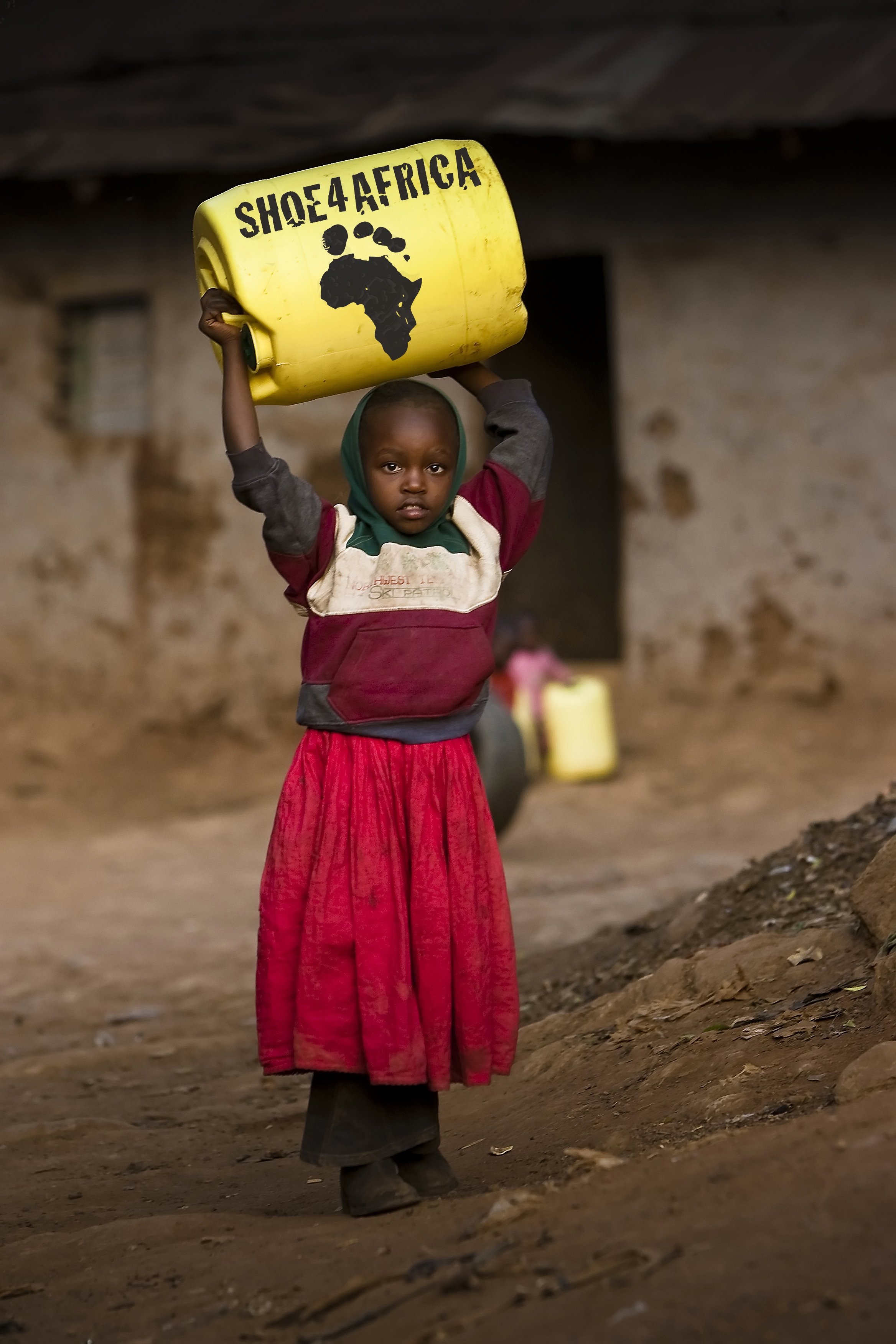
“We nourish the minds of tomorrow”
Imagine a child going to bed with a rumbling stomach, waking up to drink a meager cup of black tea, and trekking to school, all before the sun fully rises.
How much can such a child absorb in class? How well can they concentrate on lessons for the four hours before lunch (60% of the school day), participate in debate, or even engage in sports?
Sadly, this is the harsh reality for countless children in rural Kenya. In a recent study in Iten at the local Primary school, 81% of the kids had not eaten solid food for breakfast and claimed to be “extremely” hungry in the morning hours.
The struggle to learn on an empty stomach is not just a challenge; it’s an unfair barrier to their education, their future, and their dreams.
2024 Case Study: In a recent survey conducted in Iten, Kenya, startling statistics emerged from two public schools: a staggering 75% in school one and 81% of students in school two started their day without solid food, relying instead on a meager cup of tea for their “breakfast.” Even more concerning, over 70% of these tea drinking kids only consumed sugarless black tea, providing negligible energy with less than 2 calories—effectively, zero sustenance to fuel their bodies and minds for the day ahead. This paints a stark picture of the dire nutritional challenges faced by many children in the region.
“Did I go to school feeling hungry? Yes, Many, many times.”
Shoe4Africa Ambassador Benson Kipruto; Tokyo, Boston, & Chicago marathon champion.

“Nourishment is the first lesson—without food, learning is lost.” Toby Tanser, CEO Shoe4Africa.
How the Porridge Club will work:
Each morning, at 5 AM, two ladies from our Shoe4Africa Women’s Empowerment Program arrive at the Porridge Club and, using millet as the key grain, rustle up breakfast.
Why Millet? ‘Millet is high in nutrition and dietary fibre. They serve as good source of protein, micronutrients and phytochemicals. The millets contains;7-12% protein, 2-5% fat, 65-75% carbohydrates and 15-20% dietary fibre. The essential amino acid profile of the millet protein is better than various cereals such as maize.’ Read more on Millet.
Millet is locally sourced and loved by the kids. Milk, from grass fed cows, and honey, from our avocado flowered beehives, provide additional nutritious benefits.
Our kids will also receive a boiled egg thanks to our Shoe4Africa Women’s Empowerment program where a new chicken house was erected in early 2025.
Eggs: Nature’s Multivitamin in a Shell
Eggs are one of the most powerful, affordable superfoods on the planet—packed with high-quality protein, 13 essential vitamins and minerals, heart-healthy omega-3s, and brain-boosting choline, perfect for a day at school.
Just one egg delivers all nine essential amino acids your body can’t make on its own, and is especially rich in B vitamins, vitamin D, and antioxidants like selenium and carotenoids that protect against disease. Despite outdated concerns, an egg a day does not raise heart risks—in fact, eggs help balance cholesterol and support hormone and brain health. With anti-inflammatory properties, vital antibodies, and nutrients critical for growth, vision, pregnancy, and immunity, eggs are a life-changing staple—especially for growing children. And all this in just 75 calories.
“Brilliant Idea!” Governor of Elgeyo Marakwet, Hon. W. Rotich
How the day starts
Starting from 5:45 a.m. to 7:30 a.m., kids come to a serving hatch at the Porridge Club bringing their cup. They are given millet porridge containing the healthy grain giving complex carbs for sustained energy release, milk for protein and essential fats, and honey with ascorbic acid, pantothenic acid, niacin and riboflavin; along with minerals such as calcium, copper, iron, magnesium, manganese, phosphorus, potassium and zinc. They are also handed a boiled egg to be eaten later.
Twenty meters away from the Porridge Club is the Shoe4Africa All4Running boys and girls club that has seating and toilets, and we also have an expansive outdoor area where kids can eat and chat before going on their way to school. The Boys & Girls club is located in the most central spot in Iten (See on map), serving all the major public (free to attend) schools in town. Our site is just 390-meters (as the crow flies) to Iten Primary, the town’s largest school.
This project addresses the SDG goals, particularly goals 2 (Zero Hunger), 5 (Gender Equality), and 9 (Industry, Innovation and Infrastructure).

Check out a video that shows the Boys & Girls Club [LINK]
The Building: The structure is basic allowing for the storage of food supplies, washing, and cooking.
 Currently we are looking at innovative ideas for cooking that use sugarcane stalks and save trees.
Currently we are looking at innovative ideas for cooking that use sugarcane stalks and save trees.
Stage two: Iten is internationally known as the ‘Running town of Kenya’ largely due to Brother Colm’s original school training camp which has brought droves of Kenyan and foreign athletes to the town (including international teams). Although many Kenyans become champions, the majority of Kenyan runners struggle to succeed as they try to establish themselves. Rent is a challenge, as is food and, like the kids, the athletes often live in a state of malnourishment. If we are able to cope with the numbers, the Porridge Club has the potential to start hosting after ‘training runs breakfasts’ for the athletes. The plan is to begin with a post run breakfast for Iten’s famous Thursday fartlek where the champions are often first discovered.
Our project is directly in line with the current Government’s initiative. “We must eliminate the shame of hunger in our country.” Stated President Ruto.
Cost Analysis
The major cost to feed one thousand kids per day would be the Millet grains, at approx. $60-80 if each child is served 60-70 grams. Adding sugar, milk, water, cooking gas, staff (2), and day/night site security (2) expenses, we approximate $156 per day.
Given there are 36 weeks of schooling per year, this gives an annual approximate cost of $28,080 (minus electric/water bills). Thus, the cost to provide a child a breakfast, so they can sit and study all morning, instead of suffering through the morning—unable to concentrate—is just 15 US cents per child!
Impact? Five days a week in 36 weeks gives 180 days of feeding 1,000 kids = 180,000 breakfasts a year for under $30,000. Adding an egg from the free range farm, from hens fed on healthy grains, adds 15 to 20 cents per child.
Sustainability
We aim to construct a ‘Mushroom House’ to generate funds to pay the staff (4) and feed the kids, and, of course, we will continue to fundraise! Will you be a Porridge Club funder?
More reading
Excellent article written by the World Food Program explaining a World Champion’s childhood problems. WFP wrote that, ‘Paul Tergat and his family often lacked enough food for even just one simple meal a day. As a result, he rarely attended school: he just didn’t have the energy to make the three-mile journey there from his home in the drought-prone Baringo county. When he did find his way, it was difficult for him to concentrate in the classroom on an empty stomach.’ However, the WFP started a feeding program, and this “changed the life” of Paul.
“The school feeding programme really played a major role in who I am today, I was able to get stronger.” P. Tergat
Research has unequivocally demonstrated that when a child attends school on an empty stomach and attempts to engage in learning without proper nourishment, their ability to focus significantly diminishes. Consequently, they may experience difficulty concentrating, lack motivation, endure persistent fatigue throughout the day, witness a decline in physical performance, and ultimately jeopardize their potential for achieving academic and personal success.
World Champion, and the reigning women’s world record holder in the marathon, Mary Keitany (who didn’t put on a pair of shoes till she was 14 years old) recalls her childhood, “Normal was going to school without breakfast. Like it was normal to also miss supper. You could come back from school hoping for lunch just to find that nothing had been prepared that day, nothing since last night’s food. You would return to school crying with an empty stomach.”
“Concentration at school was not even there because the whole time I was thinking about when food will come.” Marko Cheseto, world marathon record holder double amputee.
World Champion, Janeth Jepkosgei, the recipient patron of our second Shoe4Africa school, remembers many times going to school with no breakfast, and waking in the morning with a desperate hunger, “The first lesson at school you can manage but from 9.30 am all the concentration is shifted to your stomach feeling hungry and the noise of an empty stomach disturbs the whole class. Walking back home felt impossible.”
“Class concentration was poor as you always feel hungry in your stomach.” Abel Kirui, World 2x Marathon Champion.
“Yes, I went to school hungry. Hunger really affects one’s concentration. You are dull, you don’t have the energy to play. A lack of food affect the well-being of growing children.” William Tanui, Olympic Champion.
World Champion, Sally Barsosio tells, “I did not miss breakfast alone, even lunch was missing. Concentration in class was nowhere because you are angry and stressed, yet it is not your fault. Our parents were not able to provide for us. Not just in school work alone but even in (running) training. Food is the key fact of life.”
When World Champion, Lydia Cheromei arrived at Brother Colm’s training camp in the 90s, she did not arrive like American kids with a sports bag full of her equipment, personal gear etc. She carried one tracksuit, a pair of running shoes, a change of clothes, and lugged a large 20kg sack of potatoes.
Ben Limo, World Champion, tells a similar story, “Missing breakfast was not alone. Sometimes as I walked home at lunchtime hoping for food there was none, and I would go back to school with an empty stomach having only taken a cup of water only. While in class, there was no concentration on learning. I sat feeling hungry and tired.”
“(Did I miss breakfast?) Many times. Definitely affected concentration in class.” Olympic and World Champ Silver, Patrick Sang.
“At school I had zero concentration. Breakfast for me was black tea without even sugar. There was no lunch at school either. One meal when I got back home in the late afternoon.” Matthew Birir, Olympic Champion.
“I can’t recall how many days I went to school hungry but many, many. It affected my self esteem leading to inconsistent academic performance and had to withdraw from participating in sports.” World Marathon silver medalist, Simon Biwott.
“On a good day, I ate boiled weeds and a fistful of ground corn.” Says John Kiptoo, Iten resident. “Every memory of my childhood is tarnished with the overwhelming memories of living in hunger and feeling weak. Although I had talent and won junior running races, I didn’t have the energy for training and was forced to quit running through poverty.”
The Porridge Club Challenge is an initiative aimed at raising awareness about the struggles faced by many Kenyan children who attend school while malnourished.
- Evening Meal:
- Participants consume a small amount of kale and maizemeal (cornmeal) for their evening meal. These staple foods are commonly available in Kenya and are often part of local diets.
- The purpose of this step is to simulate the limited food resources that some children experience daily.
- Morning Fasting:
- The next day, participants have nothing for breakfast except a cup of black, sugarless tea. This mirrors the reality for many Kenyan children who go to school on an empty stomach due to poverty and food scarcity.
- Fasting until lunchtime highlights the challenges faced by malnourished students who struggle to concentrate and learn effectively.
- Going to Work or School:
- Participants continue with their daily routine, whether it’s going to work or attending school.
- The lack of proper nutrition during the morning hours can impact energy levels, cognitive function, and overall well-being.
- Importance of Porridge Clubs:
- The challenge underscores the critical role of our Porridge Club in Kenya.
- This club provide a daily mug of nutritious porridge to children attending school. The porridge helps alleviate hunger, improves concentration, and encourages regular attendance.
- When children receive proper nutrition, they are better equipped to learn and thrive academically.
- A Little Support Goes a Long Way:
- The Porridge Club not only nourish children’s bodies but also give them hope and a chance to dream.


